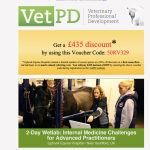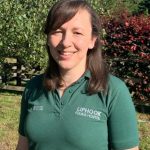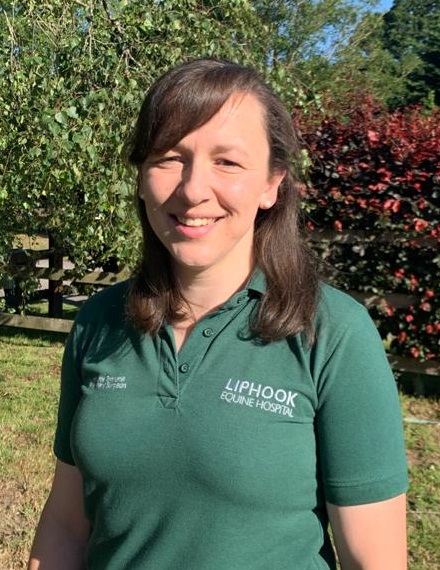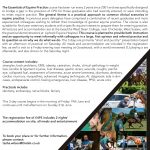

Laboratory news & podcasts
Latest news from the lab
More news from the lab



Due to expansion of our ambulatory team, we are looking to recruit a highly motivated and experienced equine ambulatory vet. A minimum of 5 years’ experience in equine practice is required. We have a diverse client base but with an increasing number of high level competition horses and stud clients. Experience in all aspects of equine ambulatory work is essential and specific expertise and knowledge of reproduction is of particular interest. Our ideal candidate will either have or aspire to achieve a post graduate qualification in their chosen field. Excellent client communications skills and ability to work as part of a team are vital.
We currently have a team of ten equine ambulatory vets (including 7 RCVS certificate holders) with the most up to date mobile equipment such as fully wireless DR radiography systems, digital ultrasonography, endoscopy, shockwave, power dental equipment etc. The ambulatory team has full back up of our tier 3 hospital which includes 9 RCVS specialists and full range of facilities such as Scintigraphy, CT and MRI.
This is a fantastic opportunity for the right candidate to further develop their skills and advance their career. The practice offers an excellent working environment with a highly competitive package.
If you are interested in applying for the position please submit an application to Carrie Goodbourn, Business Director, Liphook Equine Hospital, Forest Mere, Liphook, Hants, GU30 7JG or by email to carrie.goodbourn@theleh.co.uk including your CV and a covering letter. Applications should be received no later than Friday 14th August 2020. For an informal discussion please call Carrie on 07917851129.



Just to reassure everyone with samples they wish to submit that we are still offering a full laboratory service. Our protocols have changed considerably in view of essential measures regarding coronavirus, but the only change you might notice is the telephone system will divert to various admin staff working from home now so please allow a few more rings than normal. We are all in close communication using remote means and will be able to deal with queries as well as samples as normal. I hope you are all managing at this difficult time.

Covid -19 & Liphook Equine Hospital
We appreciate that with the spread of the Covid-19 pandemic through the UK that this is a worrying time for everyone. As the prevalence of the virus increases in the UK, we want to reassure you that we are taking precautions to ensure that we can continue to be available to look after our equine patients.
So what are we doing?
Ambulatory Vets
Hospital
How can you help us?
As the current situation is rapidly changing, we will keep you updated with any changes as they occur.
We are very pleased to announce that the final set of test results from the horses at Liphook Equine Hospital have all come back perfectly clear.
Although we took the cautious step of temporarily closing our hospital to ensure no risk to the wider equine community, we are now fully confident that there is no infectious threat from either the hospital or the horses that have been staying here. Consequently the Hospital is now open again for business as usual.
We thank all of our clients and our veterinary colleagues for their understanding, support and patience over the last couple of weeks and of course to the team at Liphook who have worked so hard to ensure this outcome.
We send our best wishes to everyone at other yards currently awaiting test results. Please continue to follow the advice of your own veterinary surgeon regarding your personal circumstances.
On the afternoon of Wednesday 8th January, a case of Equine Herpesvirus 1 (EHV-1) was confirmed at Liphook Equine Hospital. The single horse was managed in the Hospital under isolation conditions between the evening of the 6th January and the afternoon of the 8th January, when the horse returned home. Tests from the confirmed case revealed a very low level of virus. Some other horses on the yard from which the horse came have also developed symptoms indicative of an infectious viral disease caused by EHV-1 and known as equine herpesvirus myeloencephalopathy or “neurologic EHV”. Although not common, this disease is well recognised in the UK. We must remain vigilant about the possibility of transfer to other horses staying in, or visiting, our hospital who could contribute to further spread of the virus to horses elsewhere.
EHV-1 infection is governed by a voluntary code of practice that dictates that all movement of horses should cease while investigations take place. Thus, for the time being, all movement of horses both on and off the premises has ceased and we have chosen not to accept cases at Liphook Equine Hospital other than local life-threatening emergencies. We have contacted everyone who had a horse in the practice during this period and are confident that every precaution has been taken to implement appropriate containment measures. We remain hopeful that the period of isolation will not be prolonged, but this depends on further developments and laboratory testing.
Work by our ambulatory vets on the road will continue as normal and there will be instances where our veterinary specialists may be able to attend your horse at your premises or at a local practice in order to continue to provide services including elective surgeries, lameness investigation, gastroscopy and other diagnostic procedures. We are grateful to our veterinary colleagues in local practices who are working with us in the most productive and supportive way. Emergency referral admissions will be considered on an individual risk/benefit basis.
We believe our bold actions are essential for us to deliver on our commitment to observing biosecurity measures and to ensure the welfare of our patients and the wider horse population. We very much appreciate your understanding, patience and support during this challenging period. Please do call to discuss your individual requirements and we can run through options available to you.
For what to look for in cases of EHV-1 please see below:
Early signs of EHV-1 infection in horses are often just a fever with dullness and poor appetite. Respiratory signs such as a runny nose or cough might also be seen as well as enlarged glands under the jaw. In rarer instances more serious symptoms can develop such as abortion and abnormal neurological signs. If they develop, they frequently involve weakness and wobbliness of the hindlegs and tail and difficulty passing urine or faeces, although other odd behaviours are also possible.

There is a charge of £495 which includes 2 nights’ accommodation, food and entertainment for all 3 days.
For further information please click here
If you would like to book a place (or places), please complete a booking form. For further information please email tasha.wilson@theleh.co.uk

VetPD 2-Day Wetlab: Ultrasound of the Equine Upper Limb, Neck, Back & Pelvis at Liphook Equine Hospital
11th – 12th February 2020
Early Booking Discount – Deadline: 5th January 2020
For more information, please click here.
Join our lab Facebook group
What our clients say
I cannot recommend The Liphook Equine Hospital highly enough
News